Interest in African safaris from U.S. travelers is booming, with both South Africa and Kenya reporting strong numbers from North America. According to South Africa’s statistics bureau, arrivals from North America increased by 5.2% year over year in 2024, to over 430,000 travelers; that’s a 98% recovery from prepandemic levels. In Kenya, the U.S. remains the country’s leading source market, accounting for 12.8% of total arrivals, with over 306,000 visitors in 2024.
Go2Africa’s latest State of the Safari report confirms this trend: the U.S. remains the top country for safari inquiries for the tour operator. But beyond the numbers, what’s striking is how much easier selling Africa seems to have become. At least on paper.
There are now more options catering to different budgets and travel styles than ever before. “Private partnerships benefiting local communities are helping diversify safari offerings,” said Liesel Van Zyl of Go2Africa.”There’s now a wider range of options to suit different budgets, making safaris more accessible.”
Adding to this accessibility, major hotel brands like JW Marriott and Ritz-Carlton are entering iconic wilderness areas like Kenya’s Masai Mara, making safari options seem more approachable to U.S. consumers and travel advisors alike, said Pearl Jurist-Schoen, Extraordinary Journeys’ head of sales for Africa. However, while these big-brand properties may look beautiful, are well marketed, and easy to book through existing contracts, Africa is a complicated destination and shouldn’t be sold on aesthetics alone.
Anita Powell of The Africa Hub points out that while selling African safaris can be highly profitable as people’s travel budgets rise, “Africa is complicated. You don’t want to be learning on the job handling someone’s once-in-a-lifetime trip,” she said.
The challenges of selling Africa without in-depth expertise quickly become apparent when itineraries go awry. Jim Holden of Holden Safaris has seen how even well-meaning advisors can misunderstand the fundamentals.
“Most Americans have little comprehension of what makes an authentic safari,” Holden said. “A client recently told me she wanted to book her own lodge in Arusha and just have me handle the Serengeti and Masai Mara portion. I had to explain that an authentic safari isn’t just about booking nice accommodations. It’s about understanding how all the elements work together.”
These knowledge gaps lead to practical mistakes that directly impact travelers’ experiences.
“One mistake generalist agents make is not using the natural flow of available logistics, such as air schedules, to produce a smooth-flowing itinerary,” Holden said. “Another is spending too many or too few days at specific safari lodges. And the most common mistake is not appreciating how important a professional safari guide is to the successful outcome of a safari.”
Beyond logistics, there’s also a quality concern. “Camp owners increasingly target generalists by simplifying itineraries into cookie-cutter circuits,” Raza Visram of African Mecca Safaris said. “They design packages requiring little thought beyond brand trust, but this removes any comparative analysis regarding experience quality or seasonal strategy.”
So what is a nonspecialist to do?
The industry is responding to the knowledge gap with educational initiatives. David Frost, CEO of Satsa, South Africa’s inbound tourism association, points to successful training models like The Africa Hub, which have really helped the industry move forward.
Anita Powell started The Africa Hub during Covid after realizing how desperately travel advisors needed structured destination training. Today, nearly 6,000 agents across 17 countries use The Africa Hub for detailed guidance on destinations, accommodations and cultural nuances specific to Africa. “The whole site is designed with insightful, short snippets of information from experts,” Powell said.
The Africa Hub’s “How & Why to Sell
Africa” webinar is a good place for advisors to start.
Bantu Stall is another helpful platform. Founded by Kudakwashe
Mazhetese, it connects travel advisors with authentic experiences
created by local operators. “We’re building a platform where African
entrepreneurs and global collaborators can connect and build unique
cultural experiences and business retreats across the continent,”
Mazhetese said.
The bottom line: If you want to see Africa the right way, you have to do your homework.
“The best thing
newcomers can do? Learn through immersion,” Holden said. “Attend trade shows. Talk to
experts. Understand why some parks excel at certain times of the year.
And above all, respect guiding as a craft: a great guide transforms a
good safari into an extraordinary one.”
And that immersion should include hands-on experiences, according to Mefi Pishori
Alapat, safari designer at Journey to Africa, a U.S.-based safari operator. She adds that for companies
like hers, one way of keeping ahead, in a pool of so many advisors
jumping into the safari business, is going on safaris personally and
understanding the many areas of each country, logistics, visiting the
lodges, local flight systems. “It is what has helped us stay relevant
over the years,” she said.







